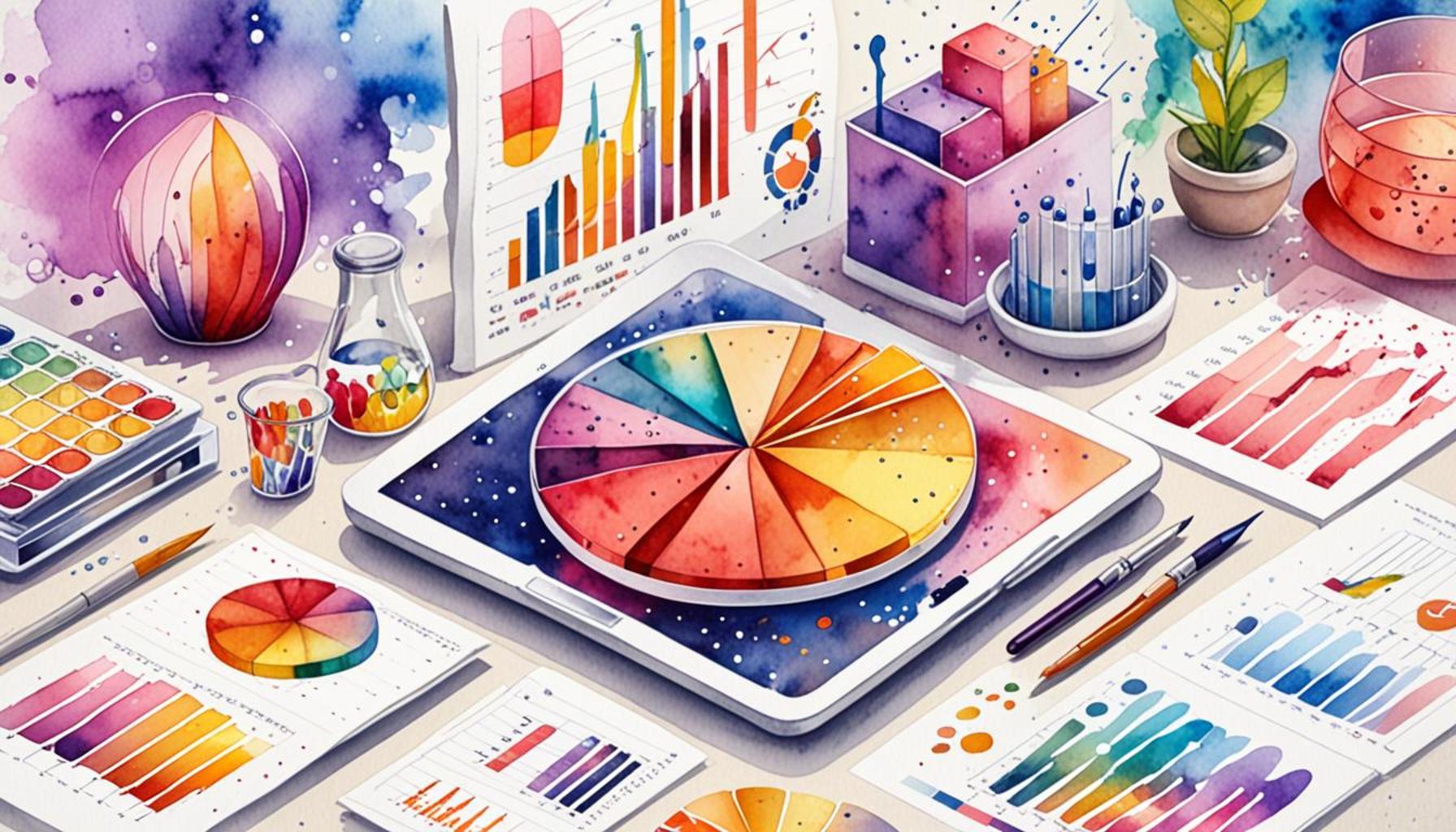The Importance of Personalization in Digital Marketing Strategies

The Importance of Personalization in Digital Marketing
In a landscape where brands vie for consumer attention, the significance of personalization has transcended being merely a marketing tactic—it’s now an essential strategy for success. In today’s information-overloaded environment, where every click is inundated by options, personal touches are what genuinely resonate with consumers. But why is this method reshaping the marketing industry?
Consider the staggering statistics: 80% of consumers are more inclined to purchase when presented with personalized experiences. This is indicative of a broader trend where shoppers are not just looking for products but are seeking connections. Among millennials, 70% anticipate a tailored interaction from brands, reflecting a shift in expectations shaped by technology and enhanced consumer awareness. Furthermore, a remarkable 90% of consumers in the United States find some form of personalization appealing, revealing a strong desire for engagement that feels relevant and specific. These numbers serve as a testament to the effectiveness of marketing strategies that cater to individual preferences and behaviors.
The realm of personalization extends far beyond cookie-cutter suggestions. Brands can harness an array of data—spanning browsing history, past purchases, and demographic information—to craft customized campaigns that are truly impactful. For instance, consider the way online retailers utilize data: they might suggest items based on items a customer has previously viewed, enhancing the shopping experience and driving conversions.
Diverse Personalization Strategies
Effective personalization strategies encompass a variety of techniques designed to enrich customer interactions. Some of the key methods include:
- Email marketing approaches that cater to individual preferences can lead to higher open and engagement rates. For example, sending tailored newsletters with product recommendations based on previous purchases can significantly improve customer satisfaction.
- Personalized landing pages that change content based on user behavior can resonate more deeply with visitors. If a user arrives on a website after searching for running shoes, presenting them with tailored offers immediately creates a more relevant experience.
- Targeted social media ads driven by user behavior provide a seamless way of introducing customized messaging. For instance, an ad for a new gadget can be shown to users who have previously engaged with similar products, thereby increasing the likelihood of conversion.
As we explore these strategies further, it becomes clear that personalization not only enhances consumer experience but also cultivates customer loyalty. In an age of fierce competition, companies that prioritize tailored interactions gain a distinct advantage. By investing in personalization, brands are not only responding to the wishes of their consumers but also fortifying their position in the digital marketplace.
The future of marketing lies not just in grabbing attention but in nurturing relationships through meaningful interactions. As businesses embrace the art of personalization, they create a landscape where consumers feel valued and understood, paving the way for sustained engagement and loyalty.
LEARN MORE: This related article may interest you
Understanding the Scope of Personalization
The digital marketing landscape has come to a realization: personalization is not just an enhancement; it is increasingly becoming a prerequisite. Brands that embrace this concept are discovering that catered content leads to superior engagement rates, increased brand loyalty, and heightened sales. In fact, a recent study showed that personalized advertising can drive up to 6 times higher transaction rates than its non-personalized counterparts. But how does personalization actually influence consumer behavior?
One of the major facets of effective digital marketing is the ability to establish a connection with customers. Most consumers now expect brands to recognize their preferences and needs, significantly impacting their purchasing decisions. This expectation is reflected in another compelling statistic: approximately 52% of consumers are likely to switch brands if they don’t receive personalized communications. This showcases the need for businesses to adapt and integrate nuanced personalization across their strategies, underscoring that ignoring such an approach can risk losing potential customers.
To harness the power of personalization effectively, brands often employ advanced technologies and techniques, making use of data analytics and machine learning. These tools allow marketers to analyze vast amounts of data—such as customer demographics, browsing behaviors, and previous interactions—to construct personalized narratives that resonate with individual consumers. Rather than a one-size-fits-all model, personalization enables brands to tailor their messaging for specific segments, enhancing relevance and connection.
Key Advantages of Personalization
Implementing personalization within digital marketing strategies offers a multitude of benefits, which include:
- Enhanced Customer Engagement: Personalized experiences create a sense of belonging and authenticity, essential for keeping consumers engaged. Tailored recommendations and messages can significantly increase user interaction with the brand.
- Increased Conversion Rates: When customers feel understood, they are more likely to make a purchase. Personalized marketing can lead to a considerable uptick in conversion rates, as consumers are presented with offers that they actually desire.
- Stronger Brand Loyalty: Providing personalized experiences fosters emotional connections. As customers feel valued and understood, they are more likely to choose and advocate for a brand over competitors.
As digital marketing continues to evolve, the demand for personalization remains unwavering. Brands that recognize its importance and adapt accordingly not only stand out in a crowded market but also build lasting relationships with their customers. In the coming sections, we will delve deeper into effective personalization techniques and how they can be implemented, ensuring that businesses remain competitive while meeting the diverse needs of consumers.
| Advantage | Description |
|---|---|
| Enhanced Customer Experience | Personalization leads to better engagement by delivering relevant content, products, and offers tailored to individual preferences. |
| Increased Conversion Rates | Targeted marketing strategies can turn potential leads into loyal customers by addressing their unique needs and pain points effectively. |
Personalization in digital marketing goes beyond simple customer recognition; it is about creating a tailored experience that resonates with the target audience. Enhanced customer experience through personalization can significantly boost brand loyalty. By leveraging data analytics, businesses can segment their audience and create bespoke marketing messages that speak directly to the interests of each segment. For instance, integrating artificial intelligence (AI) allows marketers to analyze customer behavior in real time. This capability not only identifies what products customers are interested in but also helps in predicting future purchasing behavior. As a result, brands employing these strategies are more likely to see improved customer satisfaction and increased sales. Moreover, personalization isn’t limited to emails or advertisements. It extends to the design of your website, the content shared on various platforms, and even customer service interactions. Each touchpoint is an opportunity to enhance engagement and build relationships, which are crucial in today’s competitive landscape. For businesses looking to stand out, prioritizing personalization is not just a strategy; it is a necessity that aligns with customers’ expectations in the digital age.
SEE ALSO: Click here to read another article
Effective Personalization Techniques in Digital Marketing
To fully realize the potential of personalization in digital marketing strategies, brands must deploy methods that resonate with their target audience and foster genuine connections. Among the most effective techniques are dynamic content creation, automated email marketing, and segmentation based on behavior.
Dynamic Content and Tailored Experiences
Dynamic content refers to website elements that change according to the individual user’s preferences and behaviors. For instance, a retail website may display specific product recommendations based on a customer’s previous browsing history. Research indicates that users who encounter dynamic content are 6 times more likely to convert than those who see standard, static information. This level of customization not only captures attention but also instills a feeling of being understood, enhancing customer satisfaction.
Additionally, brands can utilize geolocation data to serve localized content that speaks directly to regional preferences or cultural nuances. For example, a fast-food chain might offer different menu items through targeted ads based on local tastes, showcasing how personalization can drive relevance and engagement. By leveraging such techniques, companies can cultivate a more enriching experience that goes beyond mere transactions.
Automated Email Marketing Campaigns
One of the most effective channels for delivering personalized messages is through email marketing. Automated email campaigns allow marketers to segment their audiences based on various criteria such as purchase history, demographic information, or even engagement levels. According to studies, personalized email marketing can result in a 29% higher unique open rate compared to non-personalized messages.
Using tools like email automation software, businesses can nurture leads by sending out tailored content that speaks to their interests and needs at the right moments. For example, a global sports brand may send customized birthday discounts to loyal customers or notify them about upcoming promotions on their favorite products. This not only enhances the customer experience but also drives repeat business, proving that personalized communication significantly impacts consumer retention.
Behavior-Based Segmentation
Segmentation based on behavior delves deeper into consumer actions and interactions with a brand over time. This approach acknowledges that not all customers are created equal, and their journeys differ significantly. Marketers can harness data analytics to categorize users into specific groups—like frequent visitors, first-time buyers, or cart abandoners—and tailor strategies to each segment’s unique needs.
For instance, a travel company might target users who have shown interest in adventure travel with tailored vacation packages designed for thrill-seekers. In doing so, they create relevant touchpoints that resonate well with different audience segments, enhancing overall marketing effectiveness. Furthermore, by continually analyzing behavioral data, brands can adapt their strategies in real-time to meet changing consumer preferences.
Incorporating these personalization techniques into digital marketing strategies not only enhances customer interactions but also provides a competitive edge in an ever-evolving marketplace. Businesses that harness the power of personalization effectively will find themselves at a distinct advantage—attracting, engaging, and retaining customers in a way that traditional marketing methods simply cannot match.
CHECK OUT: Click here to explore more
Conclusion: Embracing Personalization for Marketing Success
As the digital landscape becomes increasingly competitive, the significance of personalization in marketing strategies cannot be overstated. Consumers today expect brands to understand their needs and preferences, making personalized experiences a critical factor in driving engagement and loyalty. Companies that effectively implement personalization techniques, such as dynamic content, automated email marketing, and behavior-based segmentation, stand to benefit from enhanced customer interactions that lead to higher conversion rates.
Data reveals that personalized approaches significantly outperform traditional marketing methods, with metrics indicating that personalized emails yield a 29% higher unique open rate and users interacting with dynamic content being 6 times more likely to convert. These numbers illustrate the tangible advantages of investing in tailored marketing strategies that resonate with individual customers.
Moreover, the integration of advanced analytics and geolocation data empowers brands to create highly targeted and relevant experiences that cater to local preferences. This not only solidifies customer relationships but also fosters a sense of loyalty, as consumers increasingly gravitate towards brands that demonstrate understanding and care for their unique needs.
In conclusion, personalization is not just a fleeting trend; it is a vital strategy for thriving in an evolving digital marketplace. By embracing personalization in digital marketing, companies can cultivate not only an impressive competitive edge but also lasting connections with their customers. As businesses continue to adapt in an age defined by rapid technological advancements and shifting consumer expectations, prioritizing personalization will undoubtedly pave the way for sustained success in the digital realm.


